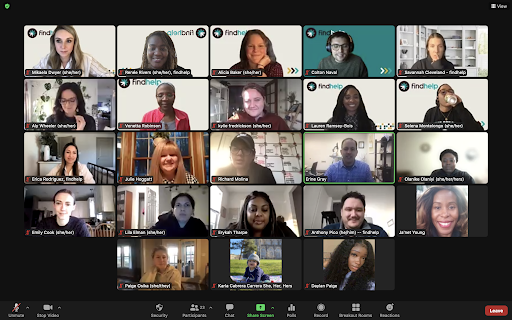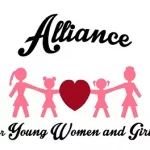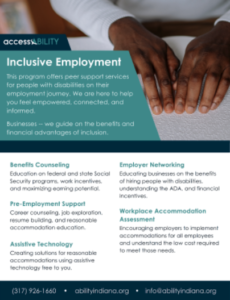When we launched our Fellowship Program, we had a vision for what this program could look like, but we were unsure how it would actually unfold. We were hopeful, but weren’t even sure if people would apply. We decided to take a leap of faith because we’re dedicated to shining the spotlight on our community.
Those who work at organizations within our network spend their days connecting people to services. For over 40 hours a week, they work tirelessly to help people seeking resources, yet their diligence often goes unnoticed. They joined the social care, health care, and/or nonprofit fields because they believe that every person is worthy of dignity and respect.
We believe that those who are dedicated to helping others deserve recognition. That’s why we took the risk to launch our fellowship program: to celebrate the work of the passionate navigators within our network and to equip them to effect greater change within their communities.

Our program launched in early January with nine excited fellows, each aiming to solve a distinct need in their community ranging from literacy, to clothing, to job opportunities for teens in foster care. We awarded each fellow $1,000 to use toward their project, and provided marketing support for the events organized by each member of this semester’s cohort.
We’re thrilled to share a glimpse into the impactful projects our fellows have jump-started this semester!
Findhelp Fellowship Updates
 Daylan Paige, Findhelp Fellow, Louisiana
Daylan Paige, Findhelp Fellow, Louisiana
Project: Single Parent Appreciation & Cultivating Healthy Childhood Development
Daylan is working hands-on to improve her community. She plans to show appreciation to single parents by hosting fun events every month. Daylan believes that parent and child relationships are very important, since healthy relationships are foundational to healthy childhood development. That’s why Daylan aims not only to provide single parents with a safe space to interact with other parents, but also to build a community bond so that their children will have a strong network of support in the future. The first event Daylan will host is called “Parents and Pastries.”
Emily Cook, Findhelp Fellow, Indiana
Project: Community Resource Fair
Emily is planning a community resource fair to coincide with the Greene County, IN 4-H Fair on July 15, 2022. Emily is partnering with the Greene County Alliance and Pace Community Action Agency to mobilize a wide range of nonprofits to participate. In addition to recruiting participating agencies, the team will also work to make sure participants’ organizations are accurately listed on findhelp.org and that their staff members know how to use the program to connect their clients to other services. She hopes to strengthen the safety net in her community through this resource fair and education project.
Erykah Tharpe, Findhelp Fellow, Florida
Project: Encouraging Dreams & Providing Resources for Local Teens
Erykah Tharpe, our Florida fellow, is partnering with local youth development programs in the Tallahassee Community. Her program will give youth the opportunity to identify their imagination, values, and talents in order to develop goals for the society in which they live. There is a special need to support teenagers in the Tallahassee community who are experiencing difficult circumstances. Due to preconceived stereotypes, teens often believe they won’t be able to overcome difficult systemic barriers. The goal of this program is to bring awareness to resources that already exist in the community; resources that will assist youth in overcoming outside influences they currently face and increase the well-being of their day-to-day lives.
Ja’net Young, Findhelp Fellow, California
 Project: Fundraiser for the Alliance for Young Women and Girls
Project: Fundraiser for the Alliance for Young Women and Girls
Fellow Ja’net Young is organizing a “Give Up Coffee for 30 Days” campaign fundraiser for the Alliance for Young Women and Girls’ Leadership & Employability Training for Women. Their mission is to prepare young women for entry-level careers that lead to upward mobility and financial security. This fundraiser aims to raise $10,000 to cover training expenses and provide free training for young women from marginalized communities. The fundraiser will be April 1 – April 30, 2022. Donate if you can!
Julie Hoggatt, Findhelp Fellow, Indiana
Project: Foster Care Resource Fair
Julie has been organizing and collaborating with Foster Success in Indianapolis to sponsor a Resource Fair at the nonprofit’s upcoming Indiana Youth Advisory Board Annual Youth Conference. The event will be held at Ivy Tech Community College in downtown Indianapolis on Thursday, June 16, 2022. The goal of this event is to provide awareness and connect older youth and young adults in Indiana who have experience in the foster care system with the services that are available to assist them in their day-to-day lives. Having worked with foster youth in the past, Julie is able to see the difficulties young people face when they leave the system. She hopes to ease the transition from foster care into adulthood for youth in Indianapolis.
Karla Cabrera Carrera, Findhelp Fellow, New York
Project: Early Childhood Literacy Event
Karla is organizing and collaborating with Friends of Tremont Park to bring an early literacy event to Walter Gladwin [Tremont] Park in The Bronx. The event will take place on Saturday, April 30th, from 11am to 1pm. The goal of the event is to raise awareness about the importance of reading to children from birth to three years old. Through the fellowship program, Karla is also giving access to books to 50 children in the East Tremont neighborhood of The Bronx.
Olanike Oladunni Olaniyi, Findhelp Fellow, Indiana
Project: Nutrition Education for Immigrant Communities
As an immigrant herself, Olanike understands the challenges of navigating healthy food options when you move to a new country. Olanike is putting on two culturally-specific nutrition-education events for immigrants from Africa and South/Latin America. She is working alongside a nutritionist to provide a class that teaches the attendees how to find healthy foods at the grocery store or local farmers market, how to read nutrition labels, how to prepare those foods, and how to find alternatives to some of their beloved foods from home. Olanike’s goals are to help attendees learn how to cook a nutritious meal on a budget, and to help them feel more comfortable when navigating the U.S. food system. She will also provide materials and resources on finding local reduced-cost food programs, applying for SNAP, and finding food pantries nearby.
 Paige Osika, Findhelp Fellow, Indiana
Paige Osika, Findhelp Fellow, Indiana
Project: Education on Eradicating Bias Toward the Disability Community
Strong communities are built through full participation of all people, and oftentimes people with disabilities are not brought to the table nor given equitable opportunities. Through a series of disability education presentations, Paige Osika, Project and Community Engagement Coordinator at accessABILITY Center for Independent Living, is working to dismantle societal bias and stigma to open opportunities for the disability community. From guides to making your physical and virtual space fully accessible, to understanding your relationship with ableism and disability allyship, to learning how to diversify your workforce, accessABILITY is working to address marginalization, empower individuals, and build an accessible community.
Richard Molina, Findhelp Fellow, Colorado
Project: Clothing for Unhoused People in the Local Community
Based in Colorado, Richard Molina is providing clothing for local unhoused populations. He has received sponsorship from the Asian Pacific Development Center to use their 501(c)(3) to obtain donations from big brands and local organizations in the community. Richard has already received generous clothing donations from many local organizations for his project and will be distributing these clothing items throughout Denver, Colorado.
Join us for our end-of-cohort symposium!
We are so excited to be working with our incredible cohort of fellows across the country. Our fellows are an inspiration to us all, and we are humbled to be a part of the programs they’ve created.
Please join us for our Findhelp Fellowship Symposium on May 9th, from 4:30pm – 6pm, Central time. Our fellows will present on each of their projects in this exciting recap session.
If you’re located near any of our fellows, please consider stopping by or donating to their projects! And, if you’re interested in being a part of this exciting program, you can learn more here!